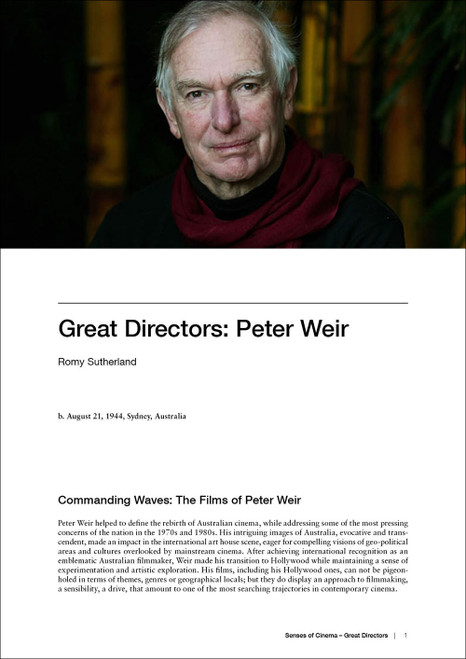Product Overview
Article sample:
You're on to a much safer bet liking someone like Martin Scorsese, whose genius shows up in all the fully approved forms – plowing a lonely course outside the studio system, obsessively burrowing down into an identifiable subset of obsessions, tearing films from his breast like chunks of his own flesh – than you are liking someone like Spielberg: devoid of visible self-destructive impulses, alighting on film after film as if giving his imagination an aerobic workout, athletically slam-dunking one box office record after another… if that guy also turns out to have been the most talented filmmaker of his generation, then what, frankly, was the point? What was the point of all those hours passed in the dark confines of the art house, boning up on Ukrainian cinema, watching the unwatchable? But there you go. What can you do. If you have to point to any one director of the last twenty-five years in whose work the medium of film was most fully itself – where we found out what it does best when left to its own devices, it has to be that guy.
– Tom Shone, Blockbuster
A quick shot of anti-elitism is almost a necessary prelude to a serious critical appreciation of Steven Spielberg. He is, in box-office terms, the most successful director ever, and there are few things quite so damaging to the reputation of an artist than extreme popularity. The sheer success of Spielberg's way of making movies, starting with his second theatrical feature Jaws in 1975, has led to a lasting critical wariness that has impeded the recognition of him as a truly great filmmaker. This has been complicated by the complex issue of what the influence of Spielberg (along with his occasional collaborator George Lucas) has done to the state of the cinema. There can be no doubt that concern about the creative and business models Hollywood embraced following Spielberg's Jaws and Lucas' Star Wars has coloured the view of Spielberg's work.
About Senses of Cinema:
Senses of Cinema is an online journal devoted to the serious and eclectic discussion of cinema. We believe cinema is an art that can take many forms, from the industrially-produced blockbuster to the hand-crafted experimental work; we also aim to encourage awareness of the histories of such diverse forms. As an Australian-based journal, we have a special commitment to the regular, wide-ranging analysis and critique of Australian cinema, past and present. Senses of Cinema is primarily concerned with ideas about particular films or bodies of work, but also with the regimes (ideological, economic and so forth) under which films are produced and viewed, and with the more abstract theoretical and philosophical issues raised by film study.







